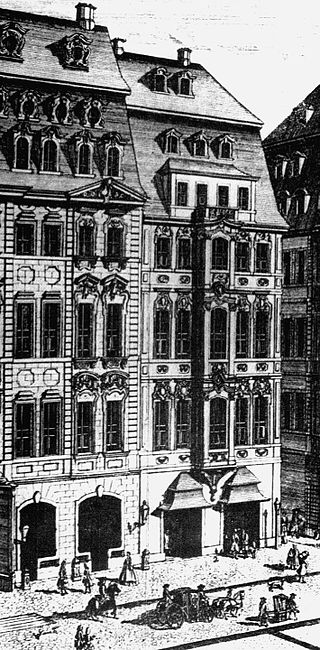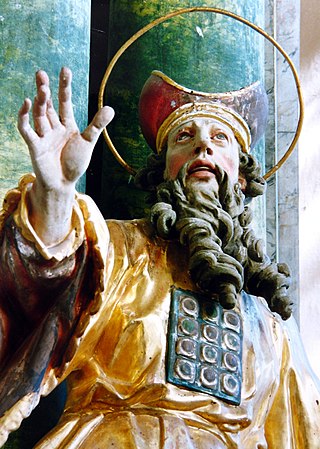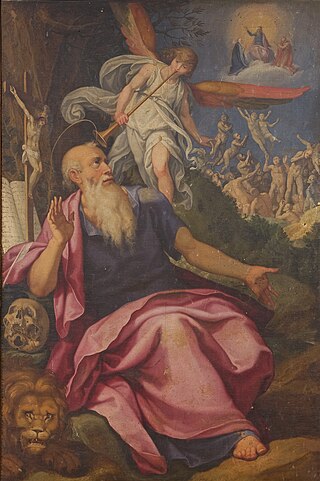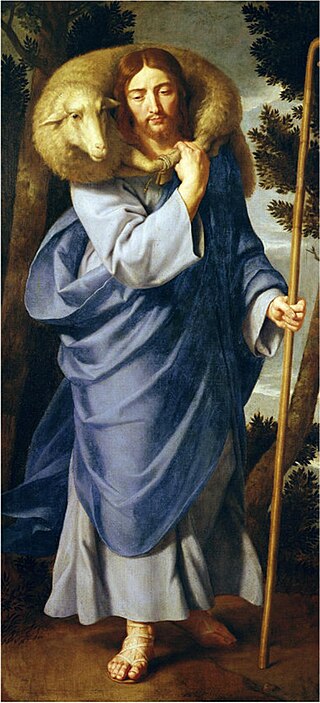Related Research Articles
Carolyn Watkinson is an English mezzo-soprano, specialising in baroque music. Her voice is alternately characterized as mezzo-soprano and contralto.

Dame Carolyn Emma Kirkby, is an English soprano and early music specialist. She has sung on over 100 recordings.

Johann Sebastian Bach composed the church cantata Jauchzet Gott in allen LandenBWV 51, in Leipzig. The work is Bach's only church cantata scored for a solo soprano and trumpet. He composed it for general use, in other words not for a particular date in the church calendar, although he used it for the 15th Sunday after Trinity: the first known performance was on 17 September 1730 in Leipzig. The work may have been composed earlier, possibly for an occasion at the court of Christian, Duke of Saxe-Weissenfels, for whom Bach had composed the Hunting Cantata and the Shepherd Cantata.

Schweigt stille, plaudert nicht, BWV 211, also known as the Coffee Cantata, is a secular cantata by Johann Sebastian Bach. He composed it probably between 1732 and 1735. Although classified as a cantata, it is essentially a miniature comic opera. In a satirical commentary, the cantata amusingly tells of an addiction to coffee.

"Alles mit Gott und nichts ohn' ihn", BWV 1127, is Johann Sebastian Bach's October 1713 setting of a poem in 12 stanzas by Johann Anton Mylius, Superintendent of Buttstädt, a town in the Duchy of Saxe-Weimar. The poem is an acrostic dedicated to Duke Wilhelm Ernst of Saxe-Weimar, on his birthday. Bach, at the time employed as court organist by the Duke, set Mylius's ode as an aria in strophic form, that is a melody for soprano accompanied by continuo for the stanzas, alternated with a ritornello for strings and continuo. When all stanzas are sung, a performance of the work takes around 45 to 50 minutes.

Was mir behagt, ist nur die muntre Jagd, BWV 208.1, BWV 208, also known as the Hunting Cantata, is a secular cantata composed by Johann Sebastian Bach, belatedly for the birthday of Duke Christian of Saxe-Weissenfels on 27 February 1713. A performance lasts about forty minutes. The aria "Schafe können sicher weiden" is the most familiar part of this cantata.

Margherita Rinaldi was an Italian lyric soprano, primarily active in the 1960s and 1970s, after she made her debut as Donizetti's Lucia di Lammermoor in 1958, prompting her career at La Scala in Milan. She also appeared internationally, performing a wide repertoire including, besides Italian belcanto roles, Baroque and French opera. She recorded the roles of Gilda in Verdi's Rigoletto and Ilia in Mozart's Idomeneo. From 1981, she worked as a voice teacher.

Juliane Banse is a German opera soprano and noted Lieder singer.

Gott, man lobet dich in der Stille, BWV 120.1, is a sacred cantata by Johann Sebastian Bach. He composed it in Leipzig for the occasion of Ratswechsel, the inauguration of a new town council in a church service, probably before 1730. Parts of the cantata appeared in a wedding cantata and a cantata commemorating the Augsburg Confession in 1730. Bach reworked the choral second movement for the Symbolum Nicenum of his Mass in B minor.

Johann Sebastian Bach composed the church cantata Siehe zu, daß deine Gottesfurcht nicht Heuchelei sei, BWV 179 in Leipzig for the eleventh Sunday after Trinity and first performed it on 8 August 1723.

Johann Sebastian Bach composed the church cantata Falsche Welt, dir trau ich nicht, BWV 52, in Leipzig for the 23rd Sunday after Trinity. He led the first performance of the solo cantata for soprano on 24 November 1726.

Gelobet seist du, Jesu Christ, BWV 91, is a church cantata by Johann Sebastian Bach. He wrote the Christmas cantata in Leipzig in 1724 for Christmas Day and first performed it on 25 December. It is based on the hymn "Gelobet seist du, Jesu Christ" by Martin Luther which was 200 years old when Bach wrote the work.

Gelobet sei der Herr, mein Gott, BWV 129, is a church cantata by Johann Sebastian Bach. It is a chorale cantata performed on Trinity Sunday 8 June 1727 in Leipzig. Rediscovery of the printed libretto of the cantata in the first decade of the 21st century led to a re-appraisal of prior assumptions regarding the early performance chronology of a few cantatas, including this one.

Johann Sebastian Bach composed the church cantata Ihr Menschen, rühmet Gottes Liebe, BWV 167 in Leipzig for the Feast of St. John the Baptist and first performed it on 24 June 1723. It is part of his first cantata cycle in Leipzig.

Herr Jesu Christ, wahr' Mensch und Gott, BWV 127, is a cantata by Johann Sebastian Bach for use in a Lutheran service. He composed the chorale cantata in 1725 in Leipzig for the Sunday Estomihi, the Sunday before Lent. It is based on Paul Eber's 1582 hymn in eight stanzas "Herr Jesu Christ, wahr Mensch und Gott". Bach first performed it on 11 February 1725.

Ich bin ein guter Hirt, BWV 85, is a church cantata by Johann Sebastian Bach. He composed it in Leipzig for the second Sunday after Easter and first performed it on 15 April 1725.

Also hat Gott die Welt geliebt, BWV 68, is a cantata by Johann Sebastian Bach, a church cantata for the second day of Pentecost. Bach composed the cantata in Leipzig and first performed it on 21 May 1725. It is one of nine cantatas on texts by Christiana Mariana von Ziegler, which Bach composed at the end of his second annual cycle of cantatas in Leipzig. In a unique structure among Bach's church cantatas, it begins with a chorale and ends with a complex choral movement on a quotation from the Gospel of John. Bach derived the two arias from his Hunting Cantata.

Johann Sebastian Bach composed the church cantata Wohl dem, der sich auf seinen Gott, BWV 139, in Leipzig for the 23rd Sunday after Trinity and first performed it on 12 November 1724. The chorale cantata is based on the hymn by Johann Christoph Rube (1692).

Nun danket alle Gott, BWV 192, is a church cantata for Trinity Sunday composed by Johann Sebastian Bach in Leipzig in 1730. It is an incomplete cantata, because its tenor part is missing. It is a chorale cantata, setting the unmodified three stanzas of Martin Rinckart's "Nun danket alle Gott". It has been regarded as an expansion of Bach's chorale cantata cycle.
Rachel Nicholls is an English soprano in opera and concert.
References
- ↑ Eichler, Jeremy (14 June 2007). "Strolling in a garden of the ancient gods". Boston Globe . Archived from the original on 18 January 2013. Retrieved 7 October 2012.
- ↑ Weininger, David (19 December 2008). "Grammy nods for local favorites". Boston Globe . Retrieved 7 October 2012.
- ↑ Sayed, Aron (2 December 2012). "Three English Orpheuses". Klassik.com (in German). Retrieved 12 September 2012.
- ↑ "Zwei barocke Sternstunden mit Carolyn Sampson und Trevor Pinnock" (in German). Die Welt. 10 October 2005. Retrieved 28 December 2011.
- ↑ "No. 64269". The London Gazette (Supplement). 30 December 2023. p. N15.
- ↑ "Aria for Soprano BWV 1127 / Alles mit Gott und nichts ohn' ihn". Bach-cantatas.com. 2012. Retrieved 12 September 2012.
- ↑ "Carolyn Sampson (Soprano)". Bach-cantatas.com. 2003. Retrieved 12 September 2012.
- ↑ Hurwitz, David (3 December 2007). "Suzuki's B minor Mass". Classicstoday.com. Retrieved 12 September 2012.
- 1 2 Vernier, David (15 December 2010). "Chailly's Great Modern Christmas Oratorio". Classicstoday.com. Retrieved 12 September 2012.
- ↑ Sadie, Julie Anne (13 June 2014). "A French Baroque Diva". Gramophone.co.uk. Retrieved 30 July 2018.
- ↑ "Carolyn Sampson überstahlt alle". Klassik-com (in German). 29 December 2008. Retrieved 29 December 2012.